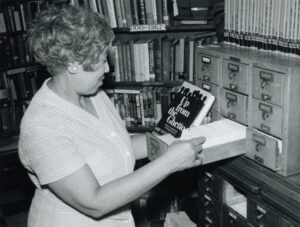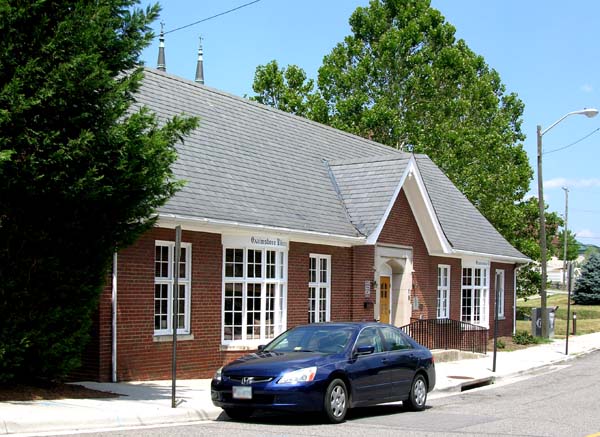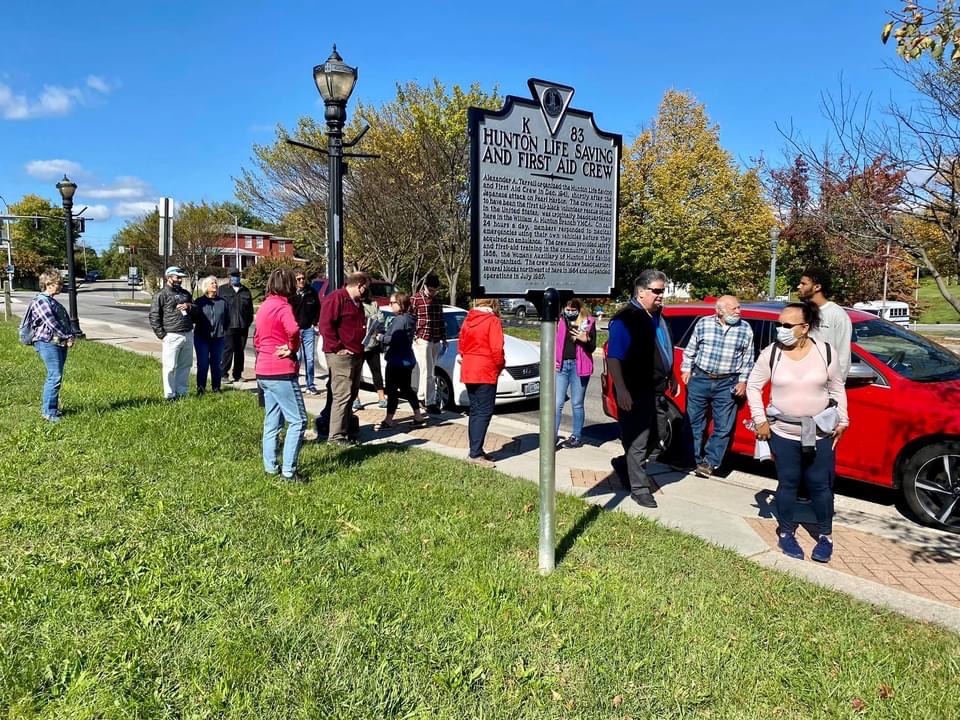Overview:
Two upcoming programs presented by the Salem Museum will explore the rich history of Roanoke’s Gainsboro neighborhood. On Thursday, July 14 at 7 pm, Megan Mizak will speak on the history of Roanoke’s first public library for African Americans as part of the Salem Museum Speaker Series. On Saturday, July 16 at 10 am, Jordan Bell will lead a tour through the Gainsboro neighborhood, sharing details of historic sites and structures. The tour leaves from the Gainsboro Branch Library. The fee for adults (age 15 and up) is $10. For more information, visit www.SalemMuseum.org.
During the years of segregation, Roanoke’s historic Gainsboro neighborhood was a thriving, predominantly African American community. Its residents, businesses, medical facilities, churches, school, and more, created a vibrant, self-sufficient center of Black culture and commerce. Gainsboro’s Henry Street was notable as the heart of entertainment with restaurants, hotels, and clubs that hosted musical icons like Louis Armstrong, Count Basie, Duke Ellington, Nat “King” Cole, and Dizzy Gillespie.
In the 1950s, “Urban Renewal” decimated the Roanoke City’s Black neighborhoods. City leaders declared large sections of Black neighborhoods “blighted,” which led to properties being bought or condemned, and the leveling of 1,600 homes, 200 businesses, and 24 churches. Today, many important commercial and institutional buildings, as well as private homes, still remain in the Gainsboro neighborhood.
Salem Museum Speaker Series: Jim Crow and Southern Libraries: The Story of the Gainsboro Branch Library – Thursday, July, 14, 2022 @ 7pm
This talk will be held in-person at the Salem Museum and on Zoom. The Zoom link will be available on the Museum’s website, www.salemmuseum.org, on the morning of the talk.
In the early twentieth century, public libraries began to spread throughout the United States. In the South, however, Jim Crow laws denied African Americans access to public library facilities. While the work of activists did not succeed in integrating public libraries, it did bring funding for African American library branch facilities. The first freestanding public library for and operated by Blacks in Virginia opened in 1921 in Norfolk. The second was in Roanoke. This talk by branch manager Megan Mizak will explore the rich history of the Commonwealth’s second library for African Americans, the Gainsboro Branch Library, from its founding by important community leaders through the tenure of its most beloved librarian, Virginia Y. Lee.
About the speaker:
Megan Mizak has worked at the Gainsboro Branch Library since 2011 and has been branch manager since June of 2021. Since working at the library, Mizak has curated, maintained and preserved the library’s Virginia Y. Lee Collection, which is composed of rare books, historical documents, photographs and reference materials that focus on African American history in the Roanoke Valley. As a dedicated public servant devoted to maintaining community connections and local history, she has sought out and fostered relationships with local community partners regarding the role of Roanoke Public Libraries’ interest in historical preservation.
Walking Tour of Historic Gainsboro – Saturday, July 16, 2022 @ 10am
The Walking Tour of Historic Gainsboro departs from the Gainsboro Branch Library, 15 Patton Avenue NE at 10am. The tour will be lead by Jordan Bell, who will introduce participants to Roanoke’s historic Gainsboro neighborhood. He will share information about sites and structures, and the many notable individuals who have lived in the neighborhood. The fee for youth and adults is $10, payable to Bell on-site before the start of the tour. Children age 14 and under are free and very welcome. The two-hour tour is cancelled in case of rain.
About the speaker:
Jordan Bell is a Gainsboro resident, community activist, Roanoke City Public Schools teacher, historian, and a Roanoke Valley Preservation Foundation board member. Bell has given tours of the historical Gainsboro community to hundreds of people. He is currently working on a book and a documentary about Gainsboro’s history.




